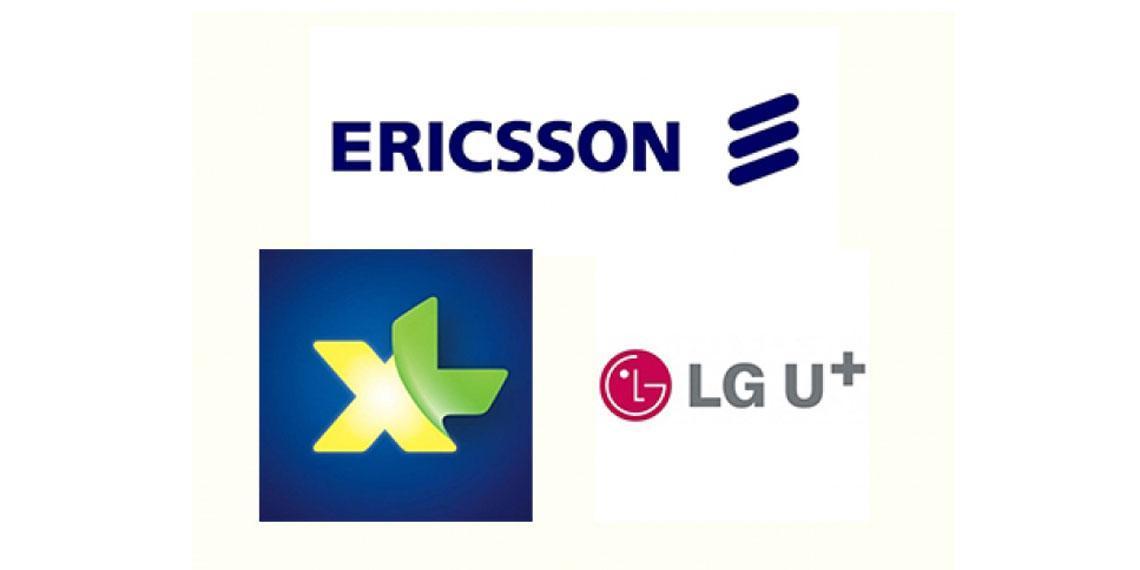Ericsson has been selected by Indonesian operator XL Axiata, to supply network functions virtualization (NFV) technology. Ericsson will deploy its full stack cloud solution, including the Ericsson Hyperscale Datacenter System 8000 based on Intel Rack Scale Architecture, and virtual network functions (VNFs) as part of XL Axiata's cloud evolution and realization of NFV. Separately, Ericsson has announced an NFV deal with Korean telco LG.
As part of the first phase of XL Axiata's transformation, Ericsson Service Aware Policy Controller (SAPC) and Traffic Monitoring and Analysis (TMA) VNFs will also be deployed. Common management of the VNFs will be enabled by the Ericsson Network Manager, which supports management of both physical and virtual network functions, offers a common view of network resources and services across multiple network technologies, and provides lifecycle management for VNFs.
According to Ericsson, ""This represents a key step for XL Axiata's cloud transformation, since both IT and network applications will be deployed in the same environment. The solution offers open NFV architecture and fulfills XL Axiata's needs for a standardized multivendor virtualization environment that will enable the operator to bring new services to market faster.
""Adopting Ericsson Hyperscale Datacenter System 8000 with carrier-grade software will also allow XL Axiata to optimize its NFV and IT infrastructure through disaggregated and software-defined infrastructure that supports more flexible and responsive resource utilization.""
LG Uplus to use Ericsson Cloud Manager and SDN Controller
Ericsson also announced the integration of Ericsson Cloud Manager with Ericsson SDN Controller to orchestrate service and cloud infrastructure management, and to provide network function virtualization (NFV) management and SDN control in a single solution to Korean operator, LG Uplus. The solution is in trials with the telco as part of its 5G and Internet of Things network evolution strategy.
Ericson to expand Telenor's Asian mobile networks
Ericsson has signed a five-year contract with Telenor Group for the design and implementation of 4G/LTE networks and the transformation of existing 2G and 3G networks in Thailand, Bangladesh and Myanmar.
The agreement includes hardware, software and services. Ericsson will install its multi-standard radio base station, the RBS 6000, which supports 3G and 4G/LTE in a single cabinet. Indoor small cell solutions will also be deployed, including the Radio Dot System and RBS 6402 to address the requirement of reliable mobility, security and performance in challenging indoor environments. Ericsson's micro radio base station RBS 6501 will also add extra capacity and seamless mobility in selected outdoor spaces.
According to Ericsson, the transformation will improve network capacity and enhance mobile broadband experiences for Telenor subsidiaries dtac (4G/LTE), Grameenphone (2G/3G) and Telenor Myanmar (2G/3G) subscribers.
Ericsson claims to be present in all high-traffic LTE markets, including the US, Japan and South Korea, and to be ranked first for handling global LTE traffic with 40 percent of the world's mobile traffic carried over Ericsson networks. It claims to be number one in LTE market share within the world's top 100 cities. More than 220 Ericsson LTE RAN and evolved Packet Core networks have been delivered worldwide, of which 170 are live commercially.





